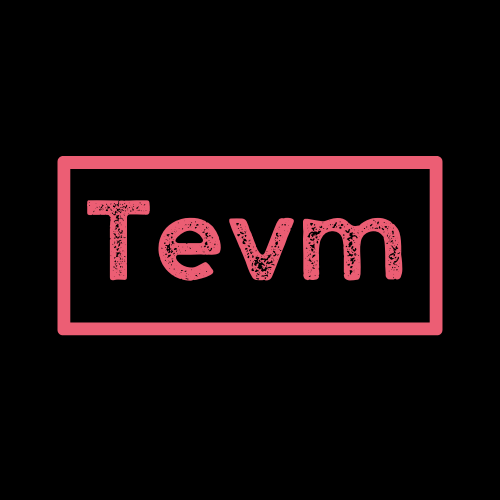BlockOptions
An object to set to which blockchain the blocks and their headers belong. This could be specified
using a Common object, or chain and hardfork. Defaults to mainnet without specifying a
hardfork.
Extended by
Properties
calcDifficultyFromHeader?
optionalcalcDifficultyFromHeader:BlockHeader
If a preceding BlockHeader (usually the parent header) is given the preceding
header will be used to calculate the difficulty for this block and the calculated
difficulty takes precedence over a provided static difficulty value.
Note that this option has no effect on networks other than PoW/Ethash networks (respectively also deactivates on the Merge HF switching to PoS/Casper).
Defined in
packages/block/src/types.ts:43
cliqueSigner?
optionalcliqueSigner:Uint8Array
Provide a clique signer’s privateKey to seal this block. Will throw if provided on a non-PoA chain.
Defined in
packages/block/src/types.ts:60
common
common:
object
A Common object defining the chain and the hardfork a block/block header belongs to.
Object will be internally copied so that tx behavior don’t incidentally change on future HF changes.
Default: Common object set to mainnet and the HF currently defined as the default
hardfork in the Common class.
Current default hardfork: merge
blockExplorers?
optionalblockExplorers:object
Collection of block explorers
Index Signature
[key: string]: ChainBlockExplorer
blockExplorers.default
blockExplorers.default:
ChainBlockExplorer
contracts?
optionalcontracts:object
Collection of contracts
contracts.ensRegistry?
optionalcontracts.ensRegistry:ChainContract
contracts.ensUniversalResolver?
optionalcontracts.ensUniversalResolver:ChainContract
contracts.multicall3?
optionalcontracts.multicall3:ChainContract
copy()
copy: () => { blockExplorers?: { [key: string]: ChainBlockExplorer; default: ChainBlockExplorer; } | undefined; contracts?: { [x: string]: ChainContract | { …; } | undefined; ensRegistry?: ChainContract | undefined; ensUniversalResolver?: ChainContract | undefined; multicall3?: ChainContract | undefined; } | undefined; … 11…
Returns
{ blockExplorers?: { [key: string]: ChainBlockExplorer; default: ChainBlockExplorer; } | undefined; contracts?: { [x: string]: ChainContract | { …; } | undefined; ensRegistry?: ChainContract | undefined; ensUniversalResolver?: ChainContract | undefined; multicall3?: ChainContract | undefined; } | undefined; … 11…
custom?
optionalcustom:Record<string,unknown>
Custom chain data.
ethjsCommon
ethjsCommon:
Common
fees?
optionalfees:ChainFees<undefined|ChainFormatters>
Modifies how fees are derived.
formatters?
optionalformatters:ChainFormatters
Modifies how data is formatted and typed (e.g. blocks and transactions)
id
id:
number
ID in number form
name
name:
string
Human-readable name
nativeCurrency
nativeCurrency:
ChainNativeCurrency
Currency used by chain
rpcUrls
rpcUrls:
object
Collection of RPC endpoints
Index Signature
[key: string]: ChainRpcUrls
rpcUrls.default
rpcUrls.default:
ChainRpcUrls
serializers?
optionalserializers:ChainSerializers<undefined|ChainFormatters,TransactionSerializable>
Modifies how data is serialized (e.g. transactions).
sourceId?
optionalsourceId:number
Source Chain ID (ie. the L1 chain)
testnet?
optionaltestnet:boolean
Flag for test networks
Defined in
packages/block/src/types.ts:24
executionWitness?
optionalexecutionWitness:VerkleExecutionWitness
Defined in
packages/block/src/types.ts:66
freeze?
optionalfreeze:boolean
A block object by default gets frozen along initialization. This gives you
strong additional security guarantees on the consistency of the block parameters.
It also enables block hash caching when the hash() method is called multiple times.
If you need to deactivate the block freeze - e.g. because you want to subclass block and add additional properties - it is strongly encouraged that you do the freeze yourself within your code instead.
Default: true
Defined in
packages/block/src/types.ts:55
setHardfork?
optionalsetHardfork:boolean|BigIntLike
Set the hardfork either by timestamp (for HFs from Shanghai onwards) or by block number for older Hfs.
Additionally it is possible to pass in a specific TD value to support live-Merge-HF transitions. Note that this should only be needed in very rare and specific scenarios.
Default: false (HF is set to whatever default HF is set by the Common instance)
Defined in
packages/block/src/types.ts:34
skipConsensusFormatValidation?
optionalskipConsensusFormatValidation:boolean
Skip consensus format validation checks on header if set. Defaults to false.

